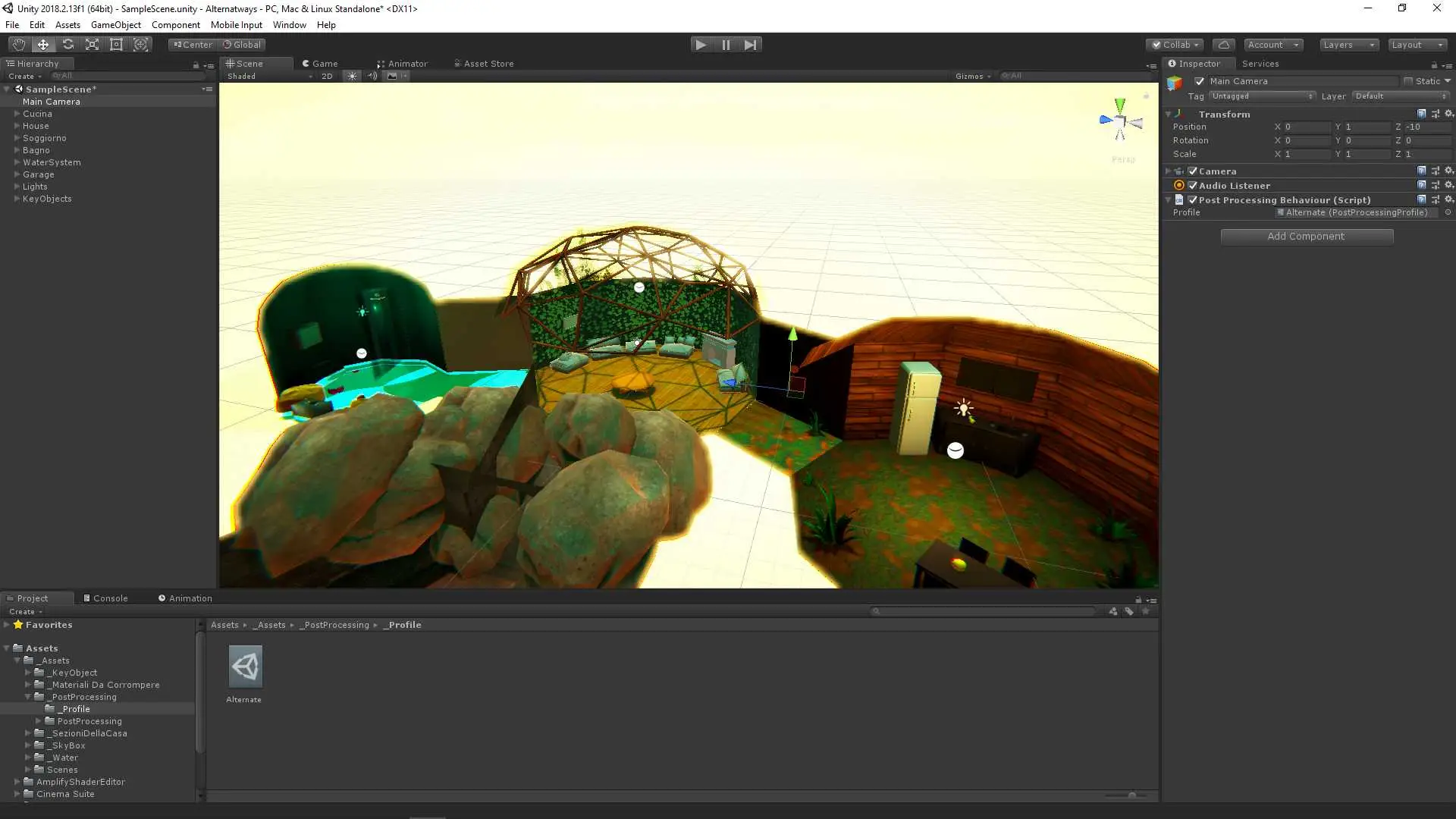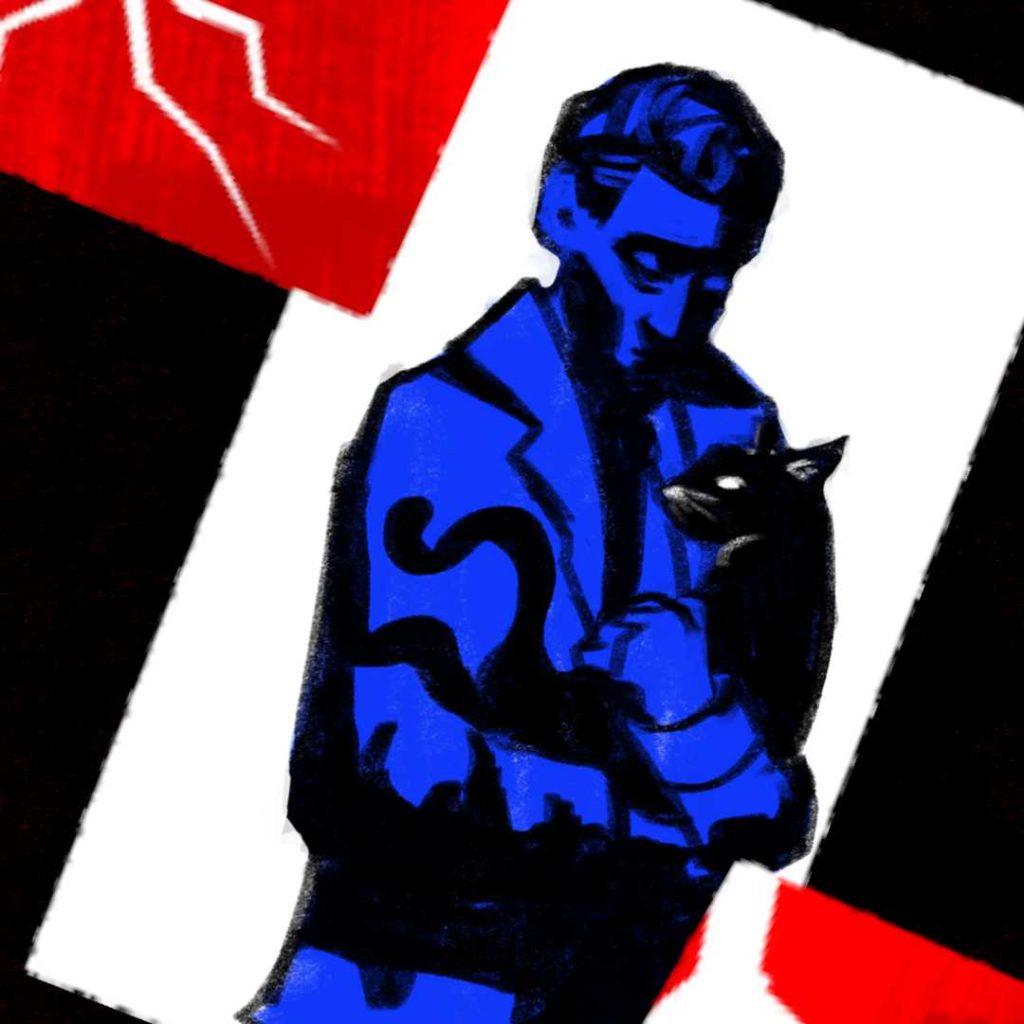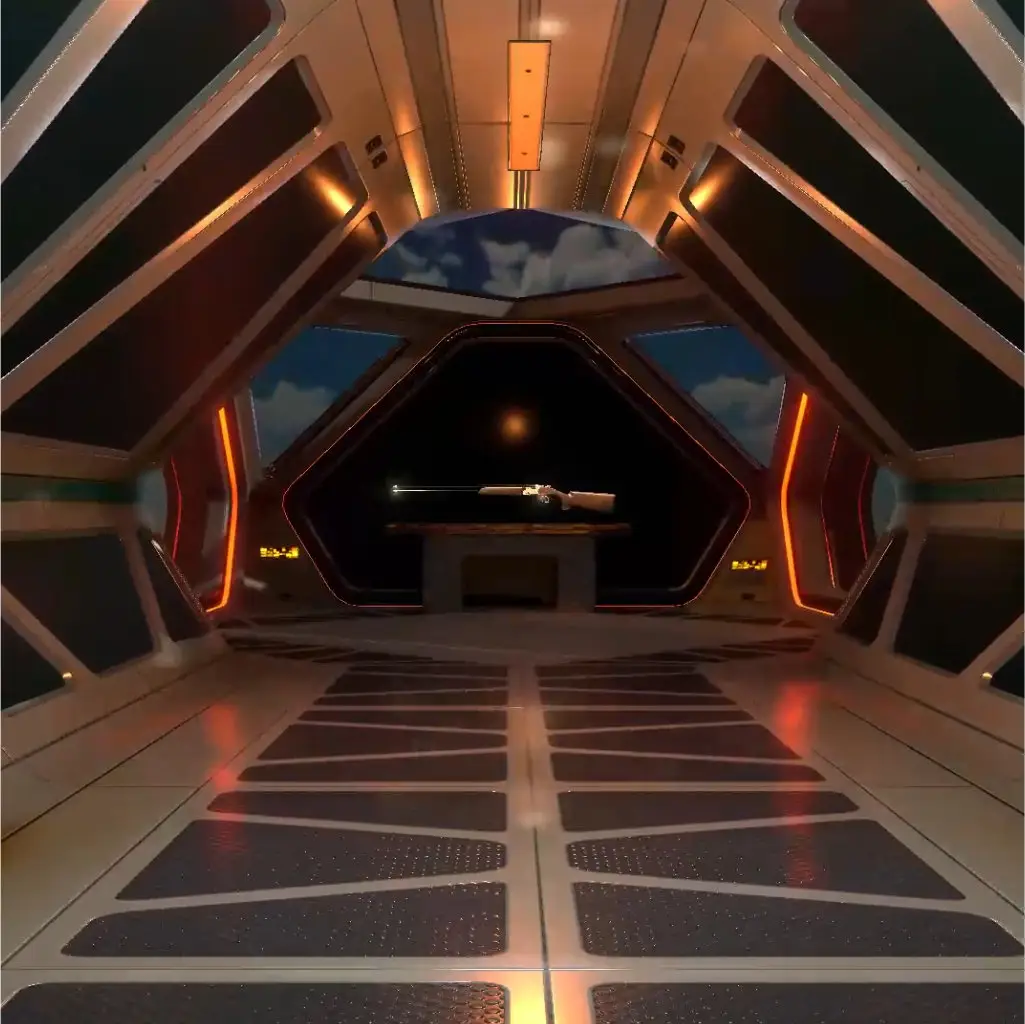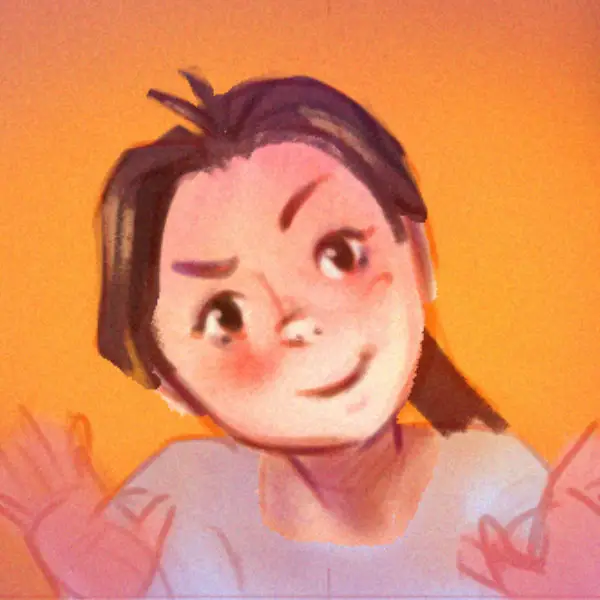A game with green dynamics
Alternate Ways
Alternate Ways is a game made during the 2019 Global Game Jam in Turin, Italy. The theme of that year’s jam was “What home means to you.”
The theme led us to think about the term home from a broad perspective, comparing it to our planet earth.
We wanted to make the player understand that the small actions one takes on a daily basis have repercussions on the community, and to do this we turned planet earth into a home to make the space familiar to the user.
The house represents different areas of our planet: the living room is the forest, the kitchen the savanna, the bathroom the aquatic areas, and finally the garage the caves.
Therefore, the player would have to make choices, and depending on the choice, the house would be transformed.
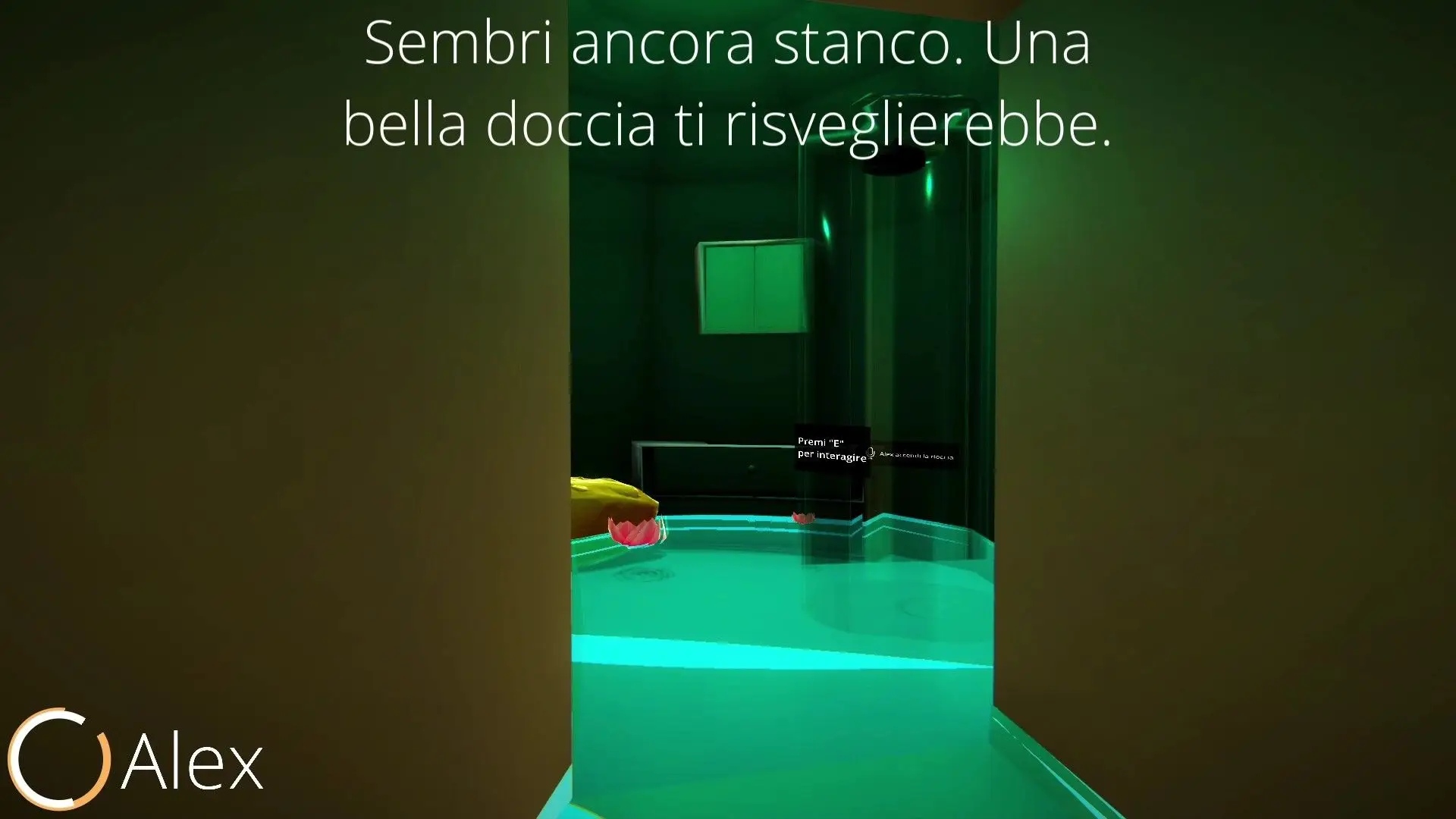
A simple morning like any other
It all starts with the alarm clock that gets us out of bed and Alex, our artificial intelligence, reminds us what we need to do before we leave the house.
The various activities offered will challenge us by making us choose whether to use sustainable methods or not.
As soon as we wake up we are cold and Alex reminds us not to catch cold, because otherwise we would get sick. The player at this point can choose whether to use Alex’s voice command to start the air conditioner, or to approach the couch and grab the sweater to warm up.
Should the player choose the first option, the room will become dark and polluted, whereas, if he takes the sweater, this will not happen.
Unconscious to become aware
The player, however, has no idea what is going on; in fact, the experience does not offer any kind of introduction. In this way, the user will behave as naturally as possible and make decisions based on his or her lifestyle.
Only at the end of the day will the game give an explanation of what happened, and then it will be proposed again to face a new morning in order to behave in the most respectful way possible toward our planet.
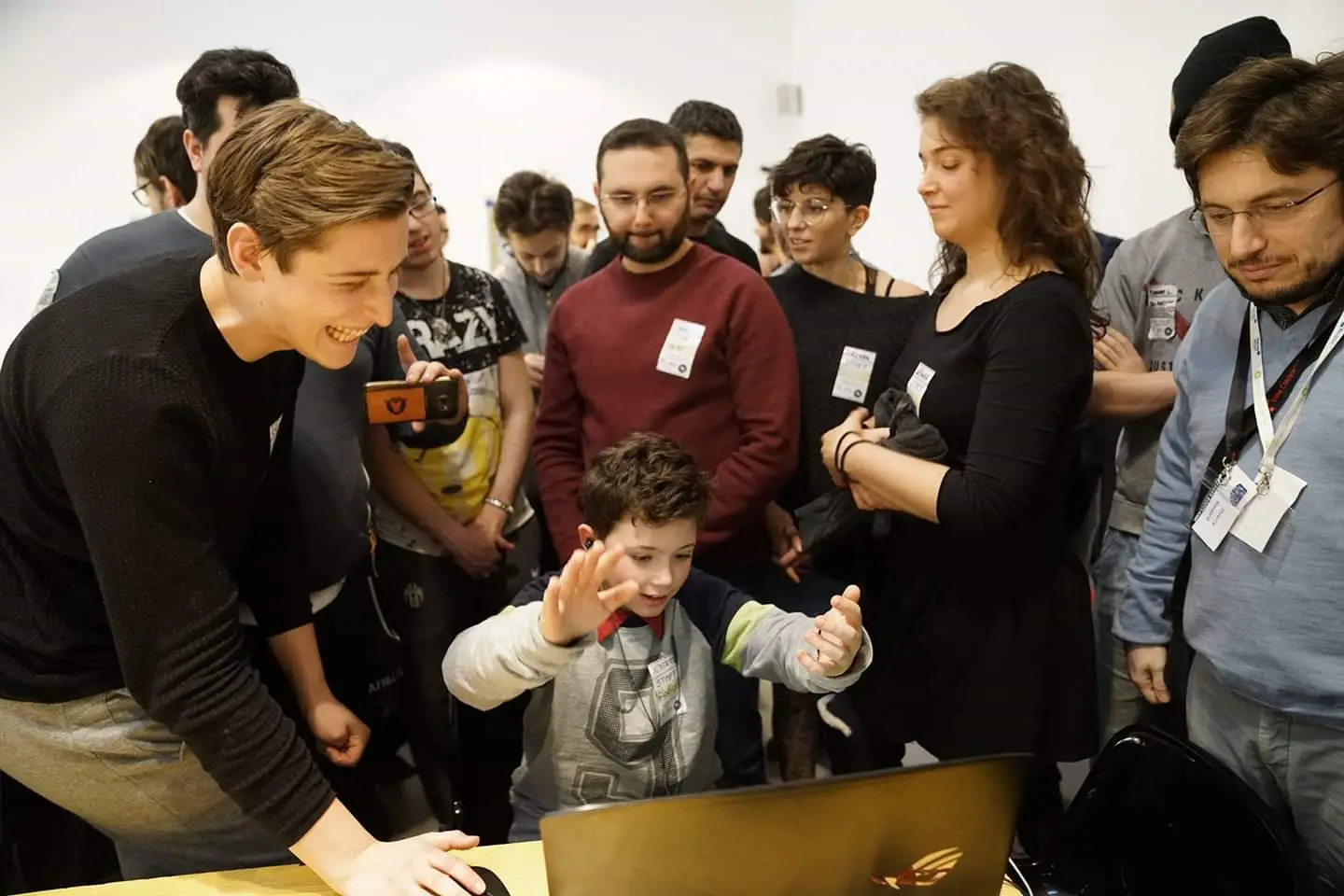
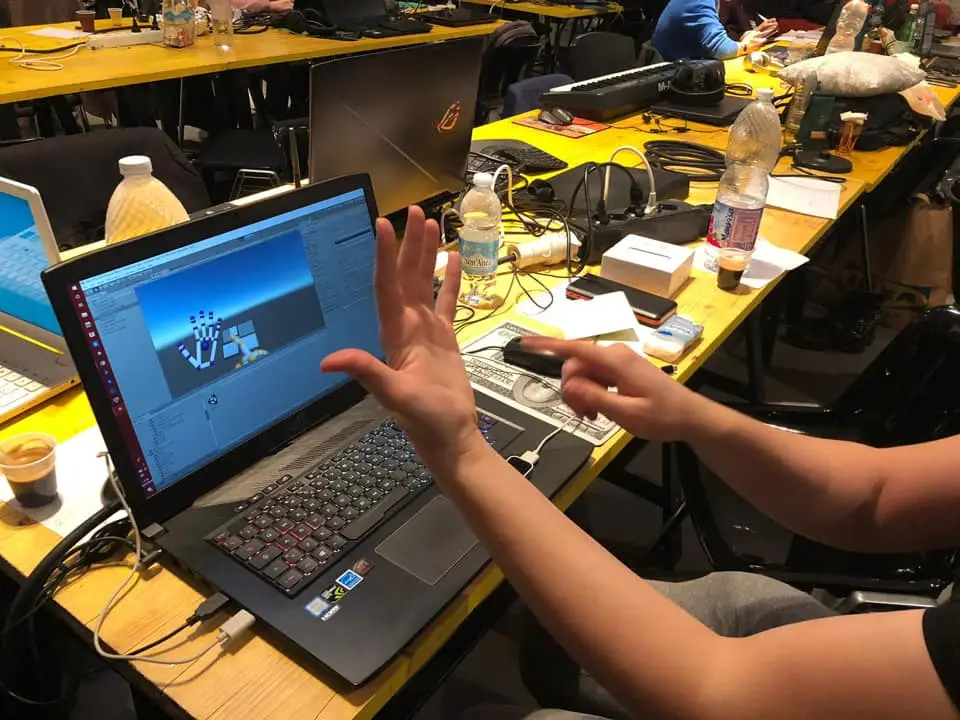
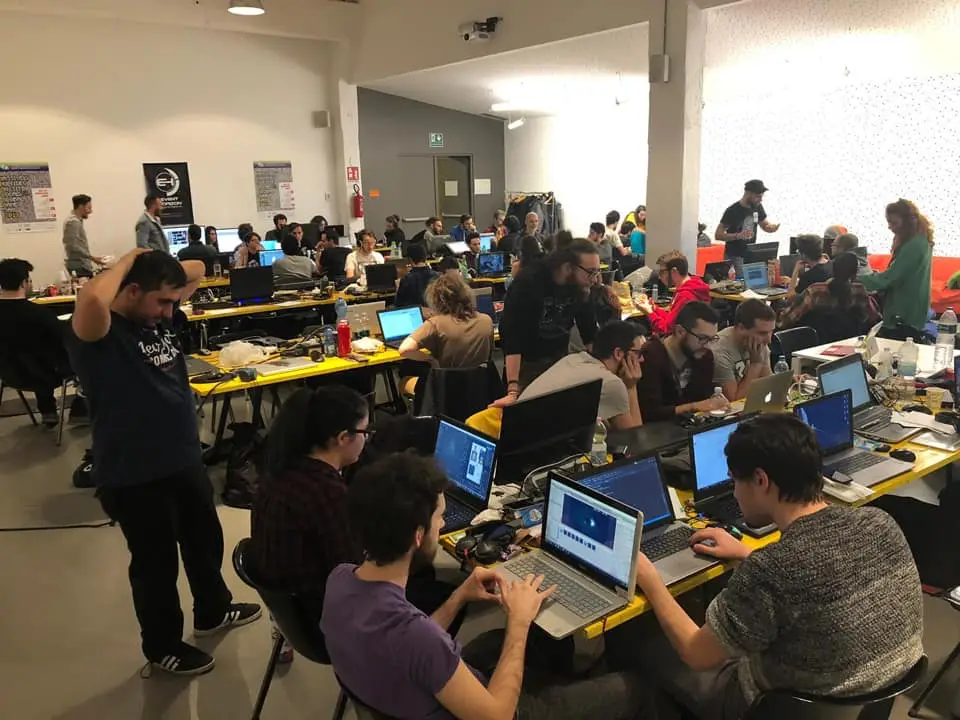
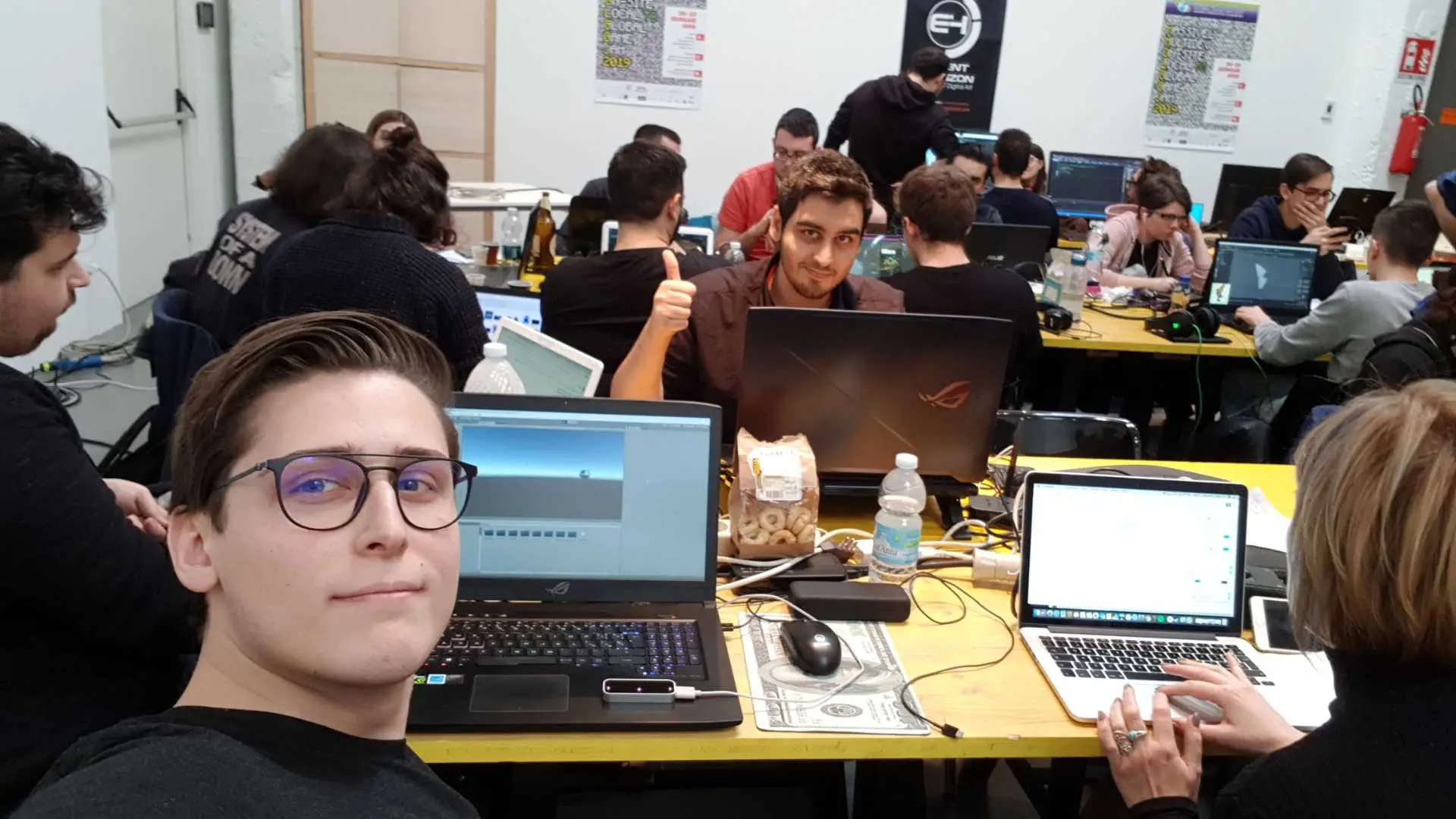
Nerd Informations
The game was developed in less than 48 hours through the Unity 3D engine. The project takes advantage of Windows speech recognition to be able to communicate with Alex, while for haptic interactions it leverages the Leap Motion device and its related SDK.
